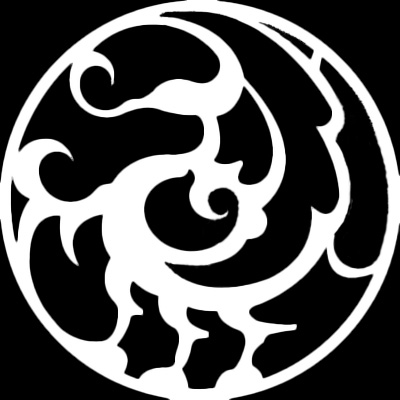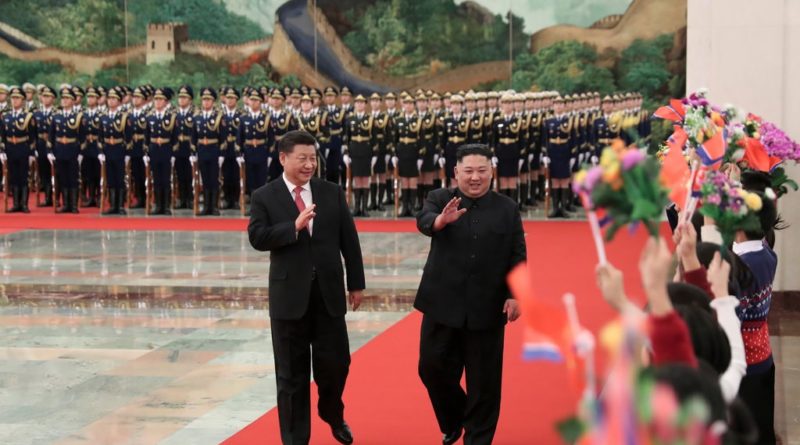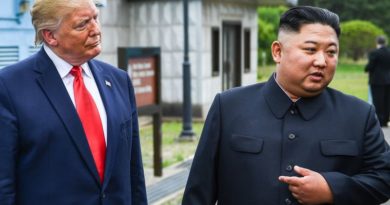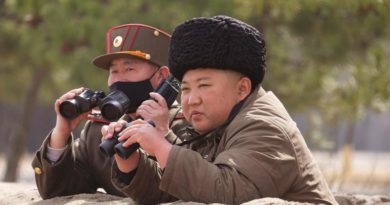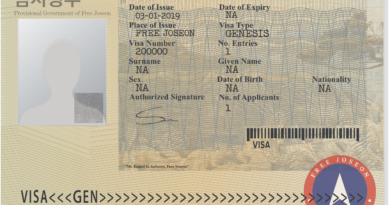A Tale of Two Summits
Chinese President Xi Jin Ping will visit Pyongyang this week for a summit before the G20 in Osaka later this month. This is the first DPRK visit by the Chinese head of state in 14 years and seems to signify China’s resolve in shaping geopolitical matters in its backyard. It also comes after KJU’s meeting with President Putin last April. And while Xi and Putin have been stepping up efforts to be included in the Trump-Kim talks, President Moon has been increasingly sidelined by his friend Kim Jong Un.
The DPRK abruptly withdrew from the liaison office at Kaesong last march, only to return three days later. However, the North Koreans have not bothered to show up for scheduled meetings reflecting their lack of interest in dialogue with the South. Consequently, the ROK announced this month that they were considering “adjusting the frequency” of inter-Korean liaison meetings, which may be an effort to save some face in light of Pyongyang’s lack of interest in inter-Korean talks. Further underscoring Moon’s ineffectiveness was his call for a fourth DPRK-ROK summit while speaking at the Oslo Forum on 12 June, only to walk those comments back following the announcement of the PRC-DPRK summit this week. Moon’s failure to convince South Koreans to support his DPRK policy juxtaposed with his failing economic policy have resulted in consistent new lows to his approval rating.
While Moon has been unable to attain an inter-Korean summit or a PRC-ROK summit, he is set to meet with President Trump in Seoul after the G20. This summit comes after the US, Japan, ROK trilateral meeting on the sidelines of the Shari-La Dialogue in Singapore on 2 June. Prior to that meeting, Trump expressed concerns to President Abe about the ROK’s commitment to trilateral cooperation, and President Abe considered foregoing a bilateral meeting with Moon during the G20. In this context, it would appear that President Moon’s attempts to inflame nationalist sentiment in the ROK population to deflect from his own administration’s failings are on the verge of alienating the ROK from its partners in the region.
Xi-Kim Summit
The PRC is currently engaged in a power struggle with the US through its One Belt, One Road and Made in China 2025 initiatives, which is manifesting in the “trade war” of proposed tariffs and battles with Huawei. Further, the political situations in Taiwan and Hong Kong can be seen as outgrowths of the broader power struggle — with the US supporting the Pro-Taiwanese and Pro-Hong Konger factions in those respective locations. Xi’s meeting with Kim will give him perceived leverage when meeting with Trump at the G20, and I doubt that the DPRK will conduct an especially provocative act at that time. To this end, I expect Xi to continue pushing for a piecemeal sanctions relief for partial dismantlement agreement along with Putin. However, given Acting Secretary of Defense Patrick Shanahan’s “gift” of 32 pages of imagery depicting DPRK ships engaged in illegal oil shipments to PRC Defense Minister Wei Fenghe, I do not believe that the Trump Administration will budge on this point. Thus, I would not be surprised to see a similar provocation by the DPRK of short-range ballistic missile launches during the G20 summit.
Trump-Moon Summit
It appears that President Moon has not yet given up acting as an advocate for the DPRK. His special advisor, Moon Chung In, has called for the US to release the Wise Honest, continues to criticize UNSC sanctions, and consistently lies about the history of engagement with the DPRK. Meanwhile, the ROK seems determined to continue damaging relations with Japan and Unification Minister Kim Yeon Chul is still advocating for the DPRK’s position in denuclearization negotations. Despite acting as DPRK advocates in the international community, the Moon Administration — as outlined above — has been discarded by Pyongyang after serving their use. I expect President Trump to push the issue of the DPRK’s proven sanctions violations, the ROK’s lack of commitment to the trilateral security cooperation, and the ROK’s violations of international sanctions. This will likely damage US-ROK relations in the short-term, but with presidential elections in the US and legislative elections in the ROK, I do not expect any significant headway on this front until after 2020.
Conclusion
It is my assessment that the current state of Northeast Asian geopolitics will remain relatively intact until after 2020, sans any large scale provocations by the DPRK. I do not believe that President Trump has the will to target Chinese banks and shipping companies for sanctions violations, and I do not believe that President Moon has changed his calculation on DPRK policy at this time. Recognizing this, I believe President Xi will advise KJU to avoid ICBM or “satellite” testing for the remainder of the year, while continuing to advocate for “piece by piece” or “good enough” denuclearization deals alongside Putin and Moon. I also believe that Moon’s domestic and diplomatic policies will cost his party in the 2020 legislative elections, which may bring the ROK back into trilateral cooperation with the US and Japan. However, President Trump has demonstrated a lack of consistency in DPRK policy which obfuscates any forecasting on Northeast Asian geopolitics.
